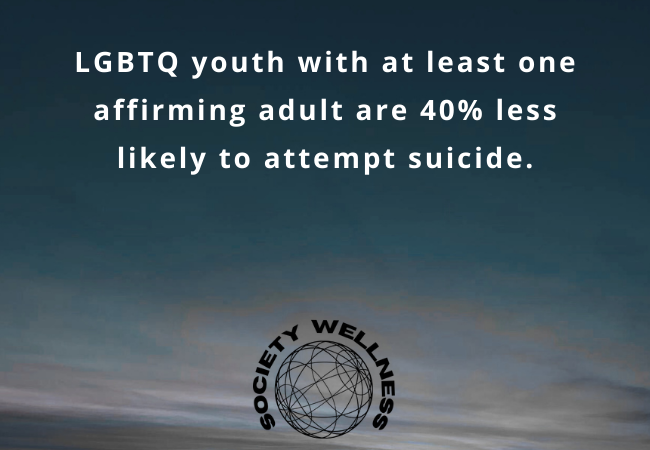In a society where LGBTQ individuals continue to face discrimination, invisibility, and rejection, maintaining good mental health can be a daily challenge. Whether it’s navigating the coming-out process, dealing with family estrangement, experiencing workplace bias, or recovering from trauma, queer people often shoulder emotional burdens that aren’t addressed by traditional therapy.
Queer therapy—offered through inclusive, identity-affirming mental health care—serves as a powerful solution. Rather than treating queer identity as a “problem,” this therapeutic approach empowers LGBTQ individuals to embrace who they are, process identity-based trauma, and build emotional resilience in the face of systemic oppression.
At LGBTQ Behavioral Health Treatment Center Massachusetts, we are committed to helping LGBTQ individuals heal and thrive through affirming services including LGBTQ Therapy in Massachusetts, LGBTQ Queer Therapy in Massachusetts, LGBTQ Couples and Marriage Counseling, and structured programs like LGBTQ PHP Treatment and LGBTQ Intensive Outpatient Program in Massachusetts.
This in-depth blog explores exactly how queer therapy supports LGBTQ mental health—and why it’s not just helpful, but essential.
The Unique Mental Health Challenges Facing LGBTQ Communities
LGBTQ individuals often face minority stress, a term describing the chronic stress faced by members of stigmatized groups. Unlike everyday stressors, minority stress comes from persistent exposure to prejudice, rejection, and identity invalidation.
Common mental health concerns among LGBTQ individuals include:
- Anxiety and panic disorders
- Major depressive disorder
- Complex PTSD
- Gender dysphoria
- Substance use disorders
- Suicidal ideation and self-harm
- Eating disorders and body image issues
Real Statistics That Demand Attention:
- 45% of LGBTQ youth seriously considered suicide in the past year.
(The Trevor Project, 2023) - 1 in 3 LGBTQ adults has experienced discrimination from a healthcare provider.
(Kaiser Family Foundation, 2022) - 41% of transgender individuals have attempted suicide at some point in their lives.
(U.S. Transgender Survey, 2015) - 60% of LGBTQ individuals struggle with symptoms of depression, and over 50% report high levels of anxiety.
(National Alliance on Mental Illness – NAMI)
These numbers reflect the emotional cost of living in a world that often questions or devalues LGBTQ existence. Queer therapy provides a compassionate, affirming space to process these experiences and build a healthier future.
What Exactly Is Queer Therapy?
Queer therapy is an affirming approach to mental health treatment that centers LGBTQ identities, relationships, and experiences. Unlike traditional therapy models that may view gender or sexuality as neutral topics, queer therapy places identity at the center of the conversation—without judgment, fear, or shame.
Key features of queer therapy include:
- Identity affirmation: All sexual and gender identities are validated as authentic.
- Inclusive language: Therapists use the correct name, pronouns, and terminology.
- Trauma-informed methods: Recognizes that many LGBTQ individuals carry complex trauma.
- Intersectional awareness: Acknowledges how race, culture, disability, and gender affect mental health.
- Empowerment-focused: Builds resilience, community connection, and pride.
Whether you are exploring your identity, recovering from trauma, navigating relationships, or managing depression and anxiety, queer therapy meets you where you are—and walks with you toward healing.
How Queer Therapy Actively Supports LGBTQ Mental Health
Let’s break down how queer therapy makes a real difference in mental health outcomes for LGBTQ individuals:
1. Validates Identity and Experience
Many LGBTQ clients come to therapy after being pathologized by systems that don’t understand them. Queer therapy flips the script by recognizing:
- Queer and trans identities are not disorders
- Being LGBTQ is not the cause of distress—oppression is
- You do not need to change your identity to find peace
This validation alone can be profoundly healing.
2. Addresses Internalized Shame and Homophobia/Transphobia
Many LGBTQ individuals internalize negative messages from families, religious institutions, or society. Queer therapy helps uncover and challenge those beliefs, offering:
- Tools to build self-acceptance
- Strategies for re-writing internal narratives
- Support for building a positive queer identity
Through this process, clients often report reduced anxiety, increased self-esteem, and stronger emotional boundaries.
3. Supports Coming Out and Identity Exploration
Coming out isn’t one moment—it’s a lifelong process. Queer therapy provides:
- A space to explore your sexual and gender identity
- Support for managing difficult conversations
- Resources for finding community support
Whether you’re questioning, newly out, or re-defining your identity later in life, queer therapy walks with you through the journey.
4. Helps Heal Trauma from Rejection, Violence, and Discrimination
Queer individuals face increased rates of trauma, including:
- Childhood bullying
- Religious trauma
- Conversion therapy
- Sexual assault and hate crimes
- Workplace or housing discrimination
Queer therapists utilize evidence-based tools like EMDR, CBT, DBT, and trauma-informed practices to help clients process and heal from these painful experiences.
5. Improves Emotional Regulation and Coping
Living in a world that challenges your right to exist can lead to chronic anxiety, rage, or numbness. Queer therapy helps clients:
- Identify emotional triggers related to identity-based stress
- Learn regulation tools to respond effectively
- Build self-compassion and resilience
These skills are particularly emphasized in structured programs like our LGBTQ Intensive Outpatient Program in Massachusetts.
What Are LGBTQ PHP and IOP Programs—And How Do They Help?
Sometimes, weekly therapy sessions aren’t enough. For individuals in crisis or in need of more consistent support, we offer two structured mental health programs:
LGBTQ PHP Treatment in Massachusetts (Partial Hospitalization Program)
PHP is ideal for individuals who:
- Are struggling with suicidal ideation or recent self-harm
- Are experiencing a mental health crisis tied to identity
- Need daily support but don’t require 24/7 inpatient care
PHP includes:
- Group therapy (identity-affirming, trauma-informed)
- Individual therapy several times weekly
- Medication management and psychiatric evaluation
- Expressive therapy and community-building
You return home each evening, combining intensive care with daily life integration.
LGBTQ Intensive Outpatient Program in Massachusetts (IOP)
IOP is suited for those transitioning from higher levels of care or needing structured support while maintaining work, school, or caregiving responsibilities.
IOP includes:
- 3–5 therapy sessions per week
- Peer support with other LGBTQ participants
- Skill-building groups (emotional regulation, self-advocacy, boundaries)
- Focus on long-term recovery and identity support
Both programs are built around the principles of queer therapy and are led by clinicians trained in LGBTQ mental health.

Queer Therapy and LGBTQ Relationships: Couples and Family Support
LGBTQ relationships often carry unique stressors that heterosexual couples don’t face—ranging from societal judgment to internalized shame.
Through LGBTQ Couples and Marriage Counseling in Massachusetts, we help couples:
- Communicate clearly around identity and transitions
- Navigate family rejection or external pressures
- Rebuild trust, intimacy, and mutual understanding
- Heal from past trauma as a team
We also offer family therapy, especially valuable when:
- A teen or adult child is coming out
- Families want to understand and support their loved one
- Parents of trans or nonbinary youth want to grow in knowledge and acceptance
Why Choose LGBTQ Behavioral Health Treatment Center in Massachusetts?
We are not just a treatment center—we’re a safe haven, a healing space, and an advocate for the mental well-being of the LGBTQ community.
What Sets Us Apart:
- Clinicians with lived LGBTQ+ experience and cultural competence
- Trauma-informed and identity-affirming therapeutic models
- Programs for individuals, couples, and families
- Inclusive, welcoming spaces for trans, nonbinary, and queer individuals
- Medical and legal transition support (when requested)
Whether you’re looking for a therapist who understands your journey or a supportive clinical program, we’re here to help you feel seen, heard, and healed.
Ready to Begin Your Journey?
You don’t have to struggle alone. Whether you’re exploring your identity, healing from trauma, rebuilding relationships, or looking for intensive support—queer therapy can guide you toward healing and self-empowerment.
At LGBTQ Behavioral Health Treatment Center Massachusetts, we’re ready to walk with you every step of the way. Call us today at 888.964.8116 Let us help you build a life where you don’t just survive—but thrive as your authentic self.
FAQ on Queer Therapy Supports LGBTQ Mental Health
What is queer therapy and how does it support LGBTQ mental health?
Queer therapy is an affirming, identity-centered approach that validates LGBTQ identities, addresses trauma and discrimination, and empowers individuals to heal and thrive.
How is LGBTQ Queer Therapy in Massachusetts different from traditional therapy?
It centers LGBTQ experiences, uses inclusive language, and addresses minority stress, internalized stigma, coming out, and gender exploration—all within a supportive and culturally competent framework.
Can queer therapy help with depression, anxiety, or trauma?
Yes. Queer therapy uses evidence-based methods like CBT, EMDR, and DBT to treat mental health issues while integrating affirming, LGBTQ-specific care.
What is the LGBTQ PHP Treatment in Massachusetts, and who is it for?
The Partial Hospitalization Program (PHP) offers intensive daily therapeutic support for LGBTQ individuals dealing with severe mental health challenges, identity crises, or recent trauma.
What does the LGBTQ Intensive Outpatient Program in Massachusetts offer?
IOP provides flexible, structured care with group and individual therapy multiple times per week—ideal for managing anxiety, depression, trauma, and gender-related stress.
Can queer therapy help with gender dysphoria or transition-related support?
Absolutely. Therapists support social and medical transitions, explore gender identity, manage dysphoria, and can provide referral letters or transition guidance upon request.
Is LGBTQ Couples and Marriage Counseling inclusive of all relationships?
Yes. Our couples therapy supports all forms of LGBTQ relationships, including those navigating identity shifts, intimacy issues, or external stress from unsupportive families or communities.
Does queer therapy include support for coming out?
Yes. Queer therapy provides guidance and emotional support during the coming out process, including safety planning, boundary setting, and communication skills.

